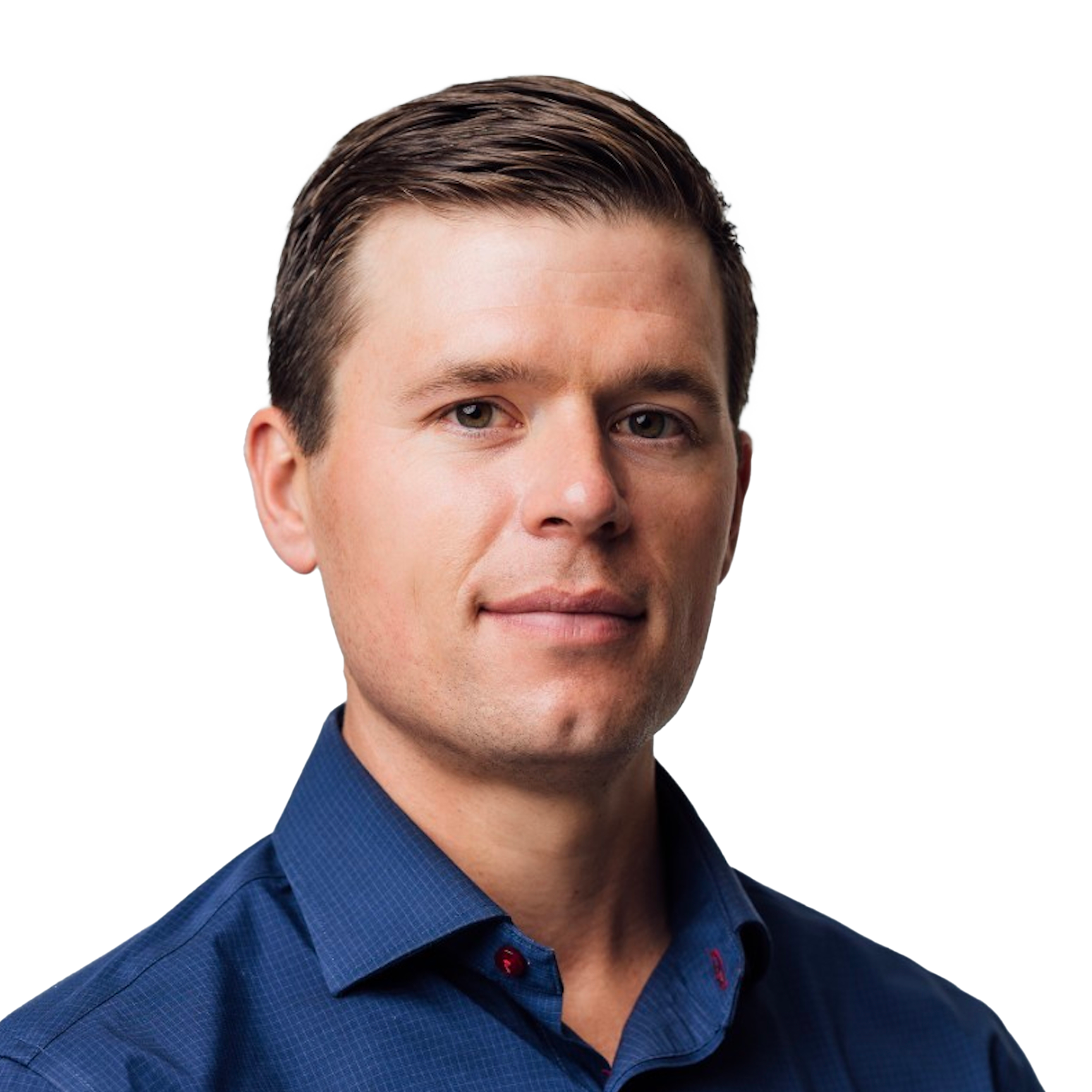

Tracy sits down with Lak Ananth, founding CEO and managing partner at Next47, a global venture firm managing over $2 billion. Lak shares insights from his journey—from his engineering beginnings in India to becoming a venture capitalist, his experiences building Next47, and his perspectives on leadership, decision-making, and the transformative potential of AI in business.
Podcast Transcript
Tracy: Hi, welcome to Path to Growth. I'm Tracy Young, co founder and CEO of TigerEye. Today we are joined by Lach Anand, founding CEO and managing partner at Next47, a global venture firm with over 2 billion in management.
Lak, welcome.
Lak: Thank you, Tracy.
Tracy: So to start, tell us about [00:01:00] growing up. Tell us about what you learned from mom and dad.
Lak: I grew up in India, in the southern part of India. I, I was always a tinkerer growing up. In fact, I used to work on my dad's scooter, dad's car.
Whenever there were projects in school, I used to, you know, build circuits and do things like that. So I think that that still lives with me. I still like doing things and tinkering around. My parents still live there. And one of the things that I learned from my parents and from my family that I still keep up today is that it does not take a lot to be happy.
I grew up in a nice family, but it was not ostentatious. You couldn't buy anything you wanted. There was no consumerism. What I do today and what I've been able to do over the many years, the interesting people that I've met, uh, the companies that I've been able to be part of, it makes me feel very privileged because, when you start off already happy, all these things are a huge bonus.
And I think getting to know founders [00:02:00] such as yourself and backing companies is just a huge bonus in life. That's something that I've kept from my younger days and from my parents.
Tracy: Oh, that's so sweet. I can hear the respect and admiration you have for your parents for giving you such a good, solid foundation, really.
It sounds like you grew up with a lot of love and happiness.
Lak: Totally. I have a 16 year old now and it's just me and my wife and my 16 year old and we constantly remind ourselves about the same thing. It's that if we start from a happy place, then, and then, then the world's your oyster, right?
You can go off and do a lot of things and enjoy every interaction you have in your life.
Tracy: Thanks for sharing that. So you're an electrical engineer by training. You've worked at startups. You have your master's degree in engineering. You also pursued an MBA and went into venture capital. So these are very different roles.
Um, I think builders, of course, at the heart. Walk us through what a good day looks like as a VC [00:03:00] and then what a bad day looks like as a VC.
Lak: The reason I like doing what I do here very much is that the job is a lot about new ideas and imagining things that are going to be out.
And most of it is not. Me or my colleagues in the firm imagining it, but it's meeting founders, meeting people who are building companies and seeing through them what is possible in the future. And I think that that is just simply, uh, an amazing and a privileged role to be in, and it, it allows you to really keep a very fresh and open mind about what is possible.
So I think a good day typically looks like, imagining something that you didn't think possible a day ago, I'm not thinking even a year ago, just a day ago. You didn't even imagine this was possible. You have a meeting with a founding team or somebody that's building something in you and you realize, wow, this is [00:04:00] possible and it's not, not possible 10 years from now, it's possible in the near future. The beginnings of it are here. And if you really think about a success case, five years, seven years from now, something amazing is going to be possible. So I think that is one part of it. The second part of it is if you'd gotten behind something, you remember, like when you first had that meeting and where it was just words on the flight or ideas.
And like two years into it, four years into it, you really start to see that come together. A lot of it is typically building something. Attracting very amazing people into that who you incorporate into building something new. And so like going to a board meeting and seeing that come and every time I go to a board meeting and I, you know, we have a sidebar conversation with some of the early team members of the founders that were there at the beginning and you remember, oh, remember how it used to be.
Just three years ago, and, you know, think about where we are now, the face at which these things can move is just simply stunning. [00:05:00] So, uh, those are the things that I think are very, very, uh, enjoyable parts of a great day in venture capital. Not so great days typically have to do with hard people matters.
There's somebody that's not a fit or there's some conflict. In one of your companies or somebody wants to leave, somebody's not performing. So these are people matters that sometimes can overwhelm, uh, you as an investor in a way, because I know it's much harder as an operator because you're responsible for, for a very large team, but most people matters that come to the attention.
Of a venture investor are not easy problems. If it were an easy problem, the founder would have solved it. Uh, if, if it is somebody that you've backed, then you'll have to have hard conversations with them about a change that they need to make or, uh, or a decision that they've been, uh, sitting on for a while, at least are not easy people problems.
Tracy: Yeah. Not unlike just businesses in [00:06:00] general or any, any community it's, we get so involved with the people we worked with and at an emotional level, and it's just so hard when it's just not working out, other.
Lak: Yes,
Tracy: it's drama or whether it's just, you know, you need to let go of someone or whether they're choosing to opt out. It's just, uh, it's, I think it's emotional. That emotional part makes it really difficult.
Lak: And you have a great person that has done amazing with you and they found a better opportunity and you have to have the much as you need them here.
You also have to, you know, very reluctantly. You know, let them go pursue that other opportunity. That's pretty hard too.
Tracy: You led CorpDev at Cisco Systems and you led important acquisitions over there, like Meraki and Starrent Networks.
And then you founded HP Pathfinder and also led important investments over there. How did Siemens convince you to co found Next47?
Lak: I was very biased to [00:07:00] do the tech ecosystem and very much having all my roots here. You know, I came to Silicon Valley right around the time of the Netscape IPO.
Now, pretty much being a product of the system and then become a strong believer in everything that's here to some degree in some kind of misguided way, also think there is no world outside of tech and this little ecosystem bubble that we are all under. So that, that's a state of mind that I was there after like spending 20 years of my career being here as engineer, product manager, working in big companies, working with startups and so on and so forth.
So when I was thinking about leaving Hewlett Packard, the Pathfinder group, which I had started, maybe raising money on my own and, and starting a new firm, right? So that was the performer idea. And then somebody that knew me, somehow connected me into Siemens as they were committed to creating Next47.
They kept calling me saying that this is a brand [00:08:00] new opportunity and you'll be like, uh, And hands off, you will have a lot of independence to operate and so on. But I, you know, I simply did not believe it. I mean, like, why, why would, uh, after being in Silicon Valley for this long and believing this system, why would I want to work with the German company that had its headquarters way out there and I hadn't even got to Germany before that in my life.
Right. So, so they, they kept calling, they kept calling and it was almost three quarters into them calling me at a, uh, Uh, pretty regular basis. And then they finally said, look, we are willing to commit a billion dollars. Our CEO has already announced this Next47 initiative to the rest of the world. So there's no going back on this commitment.
Why don't you come to Munich and meet with our CEO? And if they're not meeting. You don't see what you're looking for, then we will not call you again. So that seemed like it was a summer. I think the weather was good in Munich. So I decided, Hey, what the hell? Like, uh, [00:09:00] all expenses paid trip to Munich, uh, is not bad.
I'd never been to Germany before that. And then, uh, I had a great meeting with, uh, Joe Kazer, who was the CEO at that time, I also met the current CEO, uh, Roland Bush at that time, and, uh, between the two of them I could see that they meant what they said, which is they really were looking to create a, venture capital group with the billion dollar commitment that they had made.
And they had very much had the mindset. They are not going to tell the venture capital group what to do, but rather listen to what the venture capital group was seeing and hearing in the market and giving them the freedom to operate. Just like. Some of the best investment firms in the world, because I mean, the term that I kept using is like, if you want it to be in the venture business, you have to aspire to be the best.
Because if you are not the best venture is very unforgiving. You know, as, as you know, Tracy, more than half of venture funds don't even return their capital. So it's, it's a very [00:10:00] unforgiving business. So I, I told them that, that that's the way it can be. And so, The personalities clicked, the idea clicked, and I thought, okay, on my own, I'm never going to be able to raise a billion dollars.
This is like, I'm very good at finding great opportunities, backing them, and building a team around it. But, uh, raising money was the first time I was doing it. So, some self awareness to say, this is, take the gift and, uh, and then go build something with it. And so that's how the whole thing happened.
Tracy: And this was 2016, right?
Lak: 2016, yeah.
Tracy: What were your hopes and aspirations for Nexquary 7 in 2016, aside from, you know, knowing you were, you were going to shoot to be the best and like return money to, to the investors?
Lak: Part of, uh, my own experience working both with founders and, uh, with, with, with venture firms is it's, it's a very deeply relationship driven business because [00:11:00] even, especially many people don't realize that once you make an investment, because it's private and illiquid.
These investment periods last a very long period of time. So as I was looking into it, I'd, I'd seen enough of game film to say, once you start investing money, you're to some degree, you're stuck with the people you invest in. And also the people you invest with. So, uh, just to somebody I was saying, okay, this is going to be my life here.
Uh, essentially these are the people I'm going to be stuck with. It's not like if you don't like the people, you can just take up and move on to the, to the next little thing. You're talking about very long firm people decisions. So, uh, one of the things that I wanted to do inside the firm was put in leadership that was absolutely high integrity, had high.
performance, but we're definitely not to use the technical term, uh, definitely not assholes. So it was a little bit of like, [00:12:00] um, so I kind of leaned, um, leaned on people that I had previously known and that kind of checked the box, my fellow partners. TJ, who I had done the Kauffman fellows program with, uh, Matthew, who was actually my, um, uh, gave me my first associate role in venture and was my mentor in the Vanna Kauffman fellows program.
They said great investors, great individuals, high integrity, not assholes. So that was kind of like, that, that was kind of the approach to saying we're going to build a firm where I, I would feel very, very comfortable. Working with these people for a very long period of time, but also it feel like our forum can represent itself well to founders and kind of our, the way we work with, and also said, when we invest in people, I think we will, uh, we want to invest in people who are obviously very highly ambitious and, and people that are going to create amazing companies, but we are not going to invest in them.
Where if we don't feel comfortable that the founders are going to treat their teams, [00:13:00] right, uh, operate with the highest levels of integrity. And it's not only about making money, but it's about making money and operating with, uh, at the highest levels of kind of being role models for what, uh, we want our companies and our founders to be like.
So I think to some degree, This was also in the back of my mind, a lot of other great venture firms, uh, have similar aspirations and values, but I thought we could very, very, very clearly focus on these things and, and then do it well. And, uh, to a large degree, I think we built a portfolio of founders we're very proud of.
We have great relationships with the founders. We mess in about 10 to 12 new companies and partner relationships a year. So that's been great. And, and we've, I think, successfully built a team. About 50 people globally that kind of fit the culture and the mold of what I wanted to represent.
Tracy: And having been firsthand as a founder who has been working with Next47 and your team, I can confirm all of that as well.
Really good, smart people, normal people. It's kind of nice, actually. [00:14:00] You're right. I think
Lak: the, the, the word to use there is normal. Like it's just when you, when you, when you go to work or you work with a founder, you want to have normal relationships and, and have, uh, and really enjoy kind of being there.
That's not to say that you're not ambitious or, uh, and, and don't want to. Build outstanding things. Uh, we want to do that and we want our founders to do that. Sometimes that means making hard decisions, but you don't have to be an asshole doing those things. You can be a human being. You can be normal, still make hard decisions, still aspire big.
Tracy: As you know, um, a lot of your peers, it's just, it's just an industry with a lot of high egos. I mean, very impressive people. So maybe it's validated.
Lak: I also take the ego part of it. Tracy, like if you want to be a founder and you want to build a big company, you have to have a certain level of ego and you have to have a certain amount of delusion as well.
Otherwise it's very hard to be a founder and build something new. If your ego is a little fragile [00:15:00] or if you are, uh, you know, if you don't have a little bit of delusional of all, it's very hard to build something like, uh, like many of the things that we see built on a regular basis, like what you built before or what you're building now.
So I think that it goes with the territory. Sometimes it's UI, as you say.
Tracy: You have been a technologist and technology investor for decades now, and you've seen several major paradigm shifts, from client server to the cloud and desktop to mobile. How is AI different from these previous transitions?
Lak: Yeah, it's, it's, it's been evolving a bit.
Um, uh, Tracy, as you know, AI has existed in doing perception, you know, uh, the backbone of autonomous driving and some of the robotics work that has gone on in the last decade has been using AI to do perception, certainly prediction, which is a lot of what people have, uh, instead of just [00:16:00] using linear regression to use, um, Deep learning and other computational neural networks to do predictions and to do planning, AI is being used as well.
I think a little bit of the inflection with LLMs and all the excitement that you have now about generative AI, Uh, we are still all learning a little bit about the potential here, but, uh, the, the highest order picture that I think very, very smart people are formulating that I'm, I'm, that I'm starting to see is that with what you're doing with generated models, you are able to do a lot of human like actions in the reasoning.
In planning in decision making and, uh, the better you are able to constrain the context of where these actions need to be taken, the better AI performs and it performs it in a very consistent way. So I feel like the impact of what can be built with software [00:17:00] now and fundamentally with AI first software, the algorithms defined.
What is the problem? What are the steps to solve it? And the computer faithfully solve it instead. Now you're saying, given a set of data, you can make the computer reason you can make the computer a plan, and then you can make the computer execute. And you can do this in almost a human like fashion, which means that for white collar work or tedious high end work.
You can use computers and LLMs to do this work. And I think this is probably the most exciting thing I see from AI and it in our little world of software, this could very much mean every software category, whether this has got to do with building products, with, uh, discovering selling products or in just running organizations.
We use software, you know, all the software characters that you and I know of or used in some way here. We sat down and thought about it with this reasoning [00:18:00] capability, you should be able to remit every category of software. I mean, these days we kind of call them AI agents or services software or whatever it is, we kind of, the name we come up with it, but every category can be remitted.
And I think that's quite interesting in our own little world. I also think. That there's potentially a very significant impact in the long run about what happens to like white collar work and low end white collar work. And this, a lot of our society is, you know, like from the number of days a week, we work, what the work hours are, what our pension program is and how people are compensated.
All of this is based upon, you know, a pyramid of white collar work being available. And this is. AI is kind of starting to eat into the bottom of that pyramid of white collar work. What happens to the larger economic picture is, is something that will kind of be answered. So my view, you don't really have to [00:19:00] believe in like this singularity moment or AGI becoming real in order to really, um, think that AI will have a big impact.
The very fact that it can do human right reasoning and human like tasks is, uh, for the most mundane things. Uh, like if you want to. Loan approved, or if you just want to, uh, take, you know, order and convert that into, uh, you know, the entire quote to cash life cycle. Or if you just want to have some automated mechanism by which you're reaching out to customers, the SDR function, as you know, all of these human like things can be done by AI and that alone can have pretty big impact is kind of my view.
And, um, I, I was part of the. com boom and the internet came in and people had a lot of ideas in that 95 to 2000 timeframe. A lot of those ideas really happened over the course of the next, you know, 10, 15 years. And I think something similar could be there. We're going to see a lot of really interesting companies and products be [00:20:00] created in the next five years.
And even bigger impact in the period after that is kind of how I see the impact of AI.
Tracy: I'm sure these days you get pitched by AI companies all the time. And as. AI technologies are just rapidly evolving. I mean, you know, even if you read a white paper from three months ago, you just have to assume it's outdated.
Yeah. How do you balance the risk and reward of investing in AI technologies given, given like things are changing so fast?
Lak: Most investors will tell you like in this time. Uh, you have to back great people because you have to have people who are going to reinvent themselves at a pace. Uh, so I think that that is the most obvious answer, Tracy, but it's also true that you would do that at every point in the investment life cycle.
So it's, it's, it's not an answer just for, uh, what it is here. I think you have to have a reasonable idea that the end [00:21:00] problem that you're solving is in some way, if you're writing an application, you know, if you're, if you're doing the pics and shows of AI, I think it's, I think it's a longer discussion about which AI trends are durable and which ones are not, I mean, a year ago, Retrieval augmented generation RAG was the big thing and vector databases were the big thing.
Today, some people might say there's no such categories of vector databases, it's just the ability to kind of share some hashes and do pattern matching, right? Like, so this is the pace at which things are changing. So your investment thesis last year could already be outdated now and you're, uh, you could be in trouble.
But I'm thinking that a lot of the times we're looking at, is this like a hard and difficult problem? Um, Which has a chance of producing really, uh, outstanding results by the application of AI, and it doesn't require crazy amounts of assumptions to produce something valuable. So the easiest way that that's kind of [00:22:00] how I'm constantly evaluating in addition to work with the people, if it is an obvious problem that 30 other people could go and try to go attempt just by using the tricks of the trade of AI, that's the easiest way.
It's very hard to back and to me, a category, like just the tools around selling alone, like I'm going to do one little feature of selling. I'm going to do yet another feature of selling, and I'm going to sell to startups and these kinds of very small, nichey end customers and nichey little features. Uh, certainly quite exciting with AI, like how you can kind of reimagine it, but hard to build a company, uh, with that over time, even as your knowledge about AI keeps going.
So I'm thinking if, if the, if the problem space is big enough and only a set of people either by virtue of domain expertise, tech expertise, or the ability to kind of build and execute against that problem. If we are able to find a team and an idea that kind of goes after that, then [00:23:00] I think we feel excited about it.
But I'm also going to assume, Tracy, that we're going to be wrong a lot. Because the change, uh, that comes with the Territory and AI is going to be, um, is going to be pretty dramatic. And what we back today could easily be outdated a year from now.
Tracy: So you have a very practical point of view on, on this. You wrote a post recently, a few months back, on preventing team failure.
Lak: Yes.
Tracy: What are the best ways to make sure that startup teammates are aligned with project goals and company vision from the start?
Lak: Well, I think in terms of being through the different phases of the company, you're likely going to have a better perspective than me on this, that, uh, from a team failure perspective, I can talk about it more from what I've observed as, as an investor and kind of what, what I'm able to see outside in, in startups, um, you know, in the, in the only phases, I think there has to be a well established kind of like.[00:24:00]
role in communication among the founding team. And I think this, this is, I've seen the one element of team failure is you'll have a very single dimensional founding team. You know, there's this three people who are all. Extremely technical so that, uh, but even if that's the case, when you become part of founding something, different people can lean on different strengths, you know, so somebody can focus on products.
Somebody can focus on the building from an engineering perspective. And another person could really think about customers and commercial aspects. I'm just giving a hypothetical example of a three person team. And I feel in those very early days. Teams that figure that, figure out each other's mutual strengths and get ready and get organized amongst themselves to play the game, uh, in, in, in a configuration that can make business building easy.
I think that's one way to avoid team failure. Like if, if the three of you were engineers together. In large company X, and you came out and started the company. You don't [00:25:00] all want to, three of you don't want to be engineers in your company too. Right. That's not a formula for being successful. Like reorganizing and getting that organized amongst the OE team is good.
There are the second, second recipe I've, I've found is that in our best counters that I work with, I'm very careful in choosing. Like the first 10 or 15 people in the company. And a lot of times these are people that are their network or, um, or in, in like one, one step removed, because as you know, these are kind of like the stem cells of the company and, and creating that, that high ownership, high octane culture with the first set of people, like the first 15 people in the company, it turns out to be a very important part of avoiding team failure.
Sometimes you raise a seed round and you feel very like, okay, now I gotta hire five engineers, and you just go hire five engineers. You know, sometimes you have the urge to do that or you say, I gotta [00:26:00] hire, I mean, my investor tells me I gotta hire the next three salespeople that I see. And you may not even know what a good salesperson looks like, and you already hire three salespeople and unless that are part of the first 15, and that can very much like disrupt the, the culture of, of kind of kind of how the company comes together.
So I feel like being very deliberate about. Hiring that team, setting the norms for what you all collectively expect for the company, the laws of behavior, how you treat customers, how you treat each other, how you hold each other accountable. Those are things that are set in that, beyond that founding team, like the, you know, the next score or the founding team.
I think that that's a good way to avoid team failure at that stage. Um, and beyond that, I have, uh, uh, A couple of good learnings that I've had from how, how founders have managed it. Once the team really starts to grow, uh, very good founders, what they tend to do is not get things, they, they still [00:27:00] like to see accountability.
So whatever way they organize, they still find a way to kind of subdivide things so that they can actually see the good people that are really performing. So it's not like I have a 50 person engineering team and I don't know what they're doing. But they very much have a good set of, okay, I got a 50 person team.
These 10 are doing these, these 10 are doing that. And then they can kind of see the outputs and the performers, and they're then able to kind of give feedback, organize the team, give bigger opportunities, stretch opportunities for the people that are outstanding. So I've seen this ability to not let.
Because, you know, if your company is successful, you're pretty much, you're going to go from 10 people and then suddenly you got a hundred. And then before you know that you got 500, right? That you have to have some level of organizing it in some granular way. And this is the advantage that you have as kind of growing from scratch that a large company does not have.
You get to see like at the level of granularity, I mean, I think the best. You avoid team failure of suddenly you [00:28:00] have 50 people. You don't know what they're doing. You know what I mean? Like that kind of granularity, that's kind of one approach. The other thing that I. I've realized is that particularly in the startup environment, people are very honest when things are not working.
And I think the team failure, a mode of team failure that I think we should all avoid as much as possible is obviously knowing something's not working and letting that fester. And I think the lesson that I've learned repeatedly, and it's likely that you'll agree or you've seen this yourself, is that you've never gotten to a point in your career where you said, well, you know, I did that too soon on this people decision.
It's almost always you let it go longer than you admit it's healthy. So, uh, I'm not saying like make snap decisions and start moving things around. Uh, but if you, your founders, your fellow founders, part of the leadership team, or you're getting clear signals that something's not working, you got to make a, uh, a team change in some form or fashion, you're Then it's better for [00:29:00] you to do it and not keep the distaste of doing it from, from making that change.
I've been so amazed in my own little experience running teams is. Removing one persistent problem, like suddenly feels like the whole team is uplifted. And I'm still, it happens every single time, but I'm still amazed by how like removing one problem just completely changes the, uh, the nature of what can be done and the tenor of the whole team.
And it's not just a question of like firing somebody, it could be moving somebody who's not. In the right role to a different place, it could be a performer that's not recognized as not given a stretch opportunity. It could be any one of those moves, but when those moves become clear, you should make them sooner rather than later, that that's kind of what I would say on the team failure front.
Tracy: Yeah, I, I found the same thing too. It's so, um, interesting when someone isn't working out the founders and the CEOs and leadership, you know, the executive team is usually the last ones to find out the first people to understand [00:30:00] that this person isn't in the right place. Um, and then, and then slowly works their way up.
So by the time I find out, like, right, I see this, it's everyone in the company knows it hasn't been working out in between investing, you found time to write a very good book called anticipate failure. I have it right here. And I, um. Thought I'd read it. So anticipate failure, the entrepreneur's guide to navigating uncertainty, avoiding disaster and building a successful business.
It's a brutally honest roadmap for any founder. That, you know, wants to navigate challenges and build a business that actually succeeds. Uh, this is the book. I am going to read from this book and I'd like you to tell me more about it. So this is a, this is, um, I haven't heard the song, but it's from a very popular Hindi film from 1978.
And the lyrics go like this. Everyone comes crying, [00:31:00] but the one who will smile when he leaves, he will be called the King of Destiny. Read it again. Everyone comes crying, but the one who will smile when he leaves, he will be called the King of Destiny. And of course, this is about birth and death,
Lak: but,
Tracy: um, you talk about the business context.
So tell us more.
Lak: Yeah, I think that for, for any of you that, uh, follow, uh, Indian, Indian movies, this song was, you know, picturized on the most famous, um, Indian actor, Bollywood actor. His name is Amitabh Bachchan. So he's, uh, if you, if you speak to any Indian, like, uh, there was one, um, one people said they were the top five when, when, when he was active, very active in the industry, people used to say the top five, uh, actors in the industry are Amitabh So if he was [00:32:00] like everywhere and like the superstar, but the song, as he said, it starts out saying, Hey, we come into the world as babies crying.
And, uh, the, the person that conquers destiny or the one becomes King is the one that, that smiles on the way out, right? Like talking that, uh, so that, that it talks about life and that, that I, in the business context, the way I tend to think about it is there's a tremendous amount of hard work. That kind of goes into creating something, something of substance, something that is enduring.
And this means like having an idea, not getting it right. Um, assembling a team, not getting it right, raising money, not getting it right. But still kind of in pursuit of something that, uh, that you're very passionate about and creating it, uh, creating it through the different ups and downs, um, it's also, uh, to me, I've often observed it's not just the team that has the idea first or the team that gets out of the gate.
First is the one, uh, [00:33:00] but it's, it's like the team that has strong conviction that has got resilience that is not brittle. And the one that's kind of like, uh, they're still kind of innovating. It's, it's, it's not the initial idea, but then the subsequent idea, it's not the first hire, it's the next 10 hires.
And the people that are really kind of keeping that up. Over a period of time, uh, these are the founders and these are the companies that kind of end up winning categories. And yet, so, you know, you, you kind of have to assume that there's always at time for certain ideas to come and kind of become big and you can't assume that you have the monopoly.
On, on the idea, right? Because if the time is right and there's enough smart people with enough knowledge, looking at the problem, enough, people are going to try to kind of go after that idea. So the inspiration from the song is basically saying, okay, you kind of come in, everybody's kind of going in with all their energy, but who's going to win the category, right?
Like, so [00:34:00] it's, it's, uh, from that perspective, I, um, I was kind of saying, Hey, who's You kind of get through that phase of initial, um, effort and, and a lot of people trying, but then you tend to have to have the resilience to kind of try it. And that was, that was also the reason I called the book anticipate failure in a way, which is not to say that a lot of people fail, but to say.
Everybody fails, but it's the people who get through the small failures and don't let it become catastrophic, but rather keep their eye on the goal and make sure they make corrective action, which really ultimately leads to the big win. And it's more or less the substance of the book, because that's what I've observed, uh, throughout working with founders and creating companies.
And that's the same, same thing from that song to Tracy.
Tracy: Thanks for sharing that with our listeners.
Lak: Does that resonate with you? Like, you know, uh, through your many adventures and, you know, not just building your own companies, but advising other founders throughout their journeys. [00:35:00]
Tracy: Yeah. Just speaking from experience, there's been as a founder for almost 15 years now.
Um, there's so many times where something goes wrong and at startups, something that's constantly going wrong, whether it's a product issue, whether it's a people problem, whether it's a strategy problem, revenue problem, something, something's going to break and it's going to go wrong. Yeah. And. Some moments there's just enough obstacles and problems where it really just feels dire.
And, you know, the instinct is like, man, this would be a lot easier if I wasn't working on this. It'd be a lot easier if I just, you know. If I just removed myself from this, like quitting or stopping. And every time we just refuse to stop. And I couldn't tell you why, you know, even when it was really, really bad, like it didn't seem like it didn't seem like there was a path through it.
We just refuse to stop. And we just kept going. And then. Three years go by, five years go by. And then the company is [00:36:00] just a bigger business. Yes. And then 10 years go by and it's a, it's a very big business. . Yes, correct. And um, but you know, there's so many times where the instinct is like, let's stop doing this because it's so painful.
Lak: Yeah. Yeah. So, so that's kind of like the crying part, right. But then you stay at it, like you, you kind of get to your destiny. So that That's right.
Tracy: Do you miss writing?
Lak: It was, uh, the, the book was a bit of a covid project. I always need a bit of a hobbies writer myself. Not that I published much of it, but this was, you know, I, I wrote like my master's thesis and this and that, and I really did enjoy it.
But I, I, I wanna try to do it again. I kinda generally means that you gotta sacrifice, uh, a part. a good part of your weekend doing this, because I otherwise have a day job. But, uh, yeah, I, I'm likely going to keep doing it for a long time.
Tracy: And just like all great books, it's usually been [00:37:00] forming and shaping itself in the author's head for some years now.
So what's your next book going to be about?
Lak: Well, I think it's, uh, it's, it's still get taking shape in my head, but, uh, I wanted to write about Uh, decision making in an entrepreneurial context and to keep it very practical, which is to speak to people who kind of gone through the entrepreneurial journey and think about how they make decisions.
How do they make decisions, big decisions, small decisions, uh, the time it takes to make decisions. How do they make decisions on people? How do they make decisions on business matters? How do they. Make decision who they, who they may choose to work with and not. I've seen a lot of different good patterns in these things that I think before writing about it, I would want to have a few more conversations, but the goal of the book would actually be [00:38:00] to clearly establish for people who want to go on an entrepreneurial journey or want to create something new.
Why is decision making in this context different? You know, so if you are. Making a decision about where you cannot fail or where you are, um, you know, you're about nations go to war or about, uh, you know, changing the destiny of a hundred billion dollar company. That's a different kind of decision. I find decisions in the entrepreneurial context are very different.
So I wanted to kind of. Try to kind of go back, speak to founders who've been through that journey and then write a book about how do you, how do you make decisions in an entrepreneurial context and what are the patterns of success and failure that you've kind of seen? So ideas still forming in my head.
If, if they end up writing the book, I think it will be a, Flow of my pattern from anticipate failure. Maybe we call it anticipate decisions or something like that, uh, just to kind of keep with the theme and it's, it's not intended a, certainly there's been a lot of good decision making [00:39:00] that people have thought about how we make intuitive decisions and data driven decisions.
There's a lot of scientific research that have gone into human decision making. It's not really about that. It's, it's really about in an entrepreneurial context, what are some patterns of good decision making? You know, faster, you know, better, and, you know, deciding on athlete versus somebody that's experienced.
So these are counterintuitive decision making that need to happen in our, the neurotontics. So that's what I, you know, when I write about.
Tracy: In my previous life, when I was a construction engineer and I was working for a really good boss named Alan, um, I forget, something was like, something was wrong, something wasn't getting delivered.
There was just a problem on, on this, this hospital project. And as a young engineer, you just feel like you can't do anything. And you're sitting there and a whole week, two weeks go by and still nothing has happened because you don't know how to problem solve. You don't have the [00:40:00] experience. And I remember my boss saying, Tracy, just make a decision.
Just make a decision because if it's black and white decisions are easy to make, but most decisions are somewhere in the gray scale. Yeah. Just make a decision. If you're wrong about it, you can make a new decision tomorrow, but we have to keep going and we have to keep making progress and we can't just stagnate.
We need to move. And I filed that away because it hit me like a ton of bricks, but I love this theme on decision making because so much about building construction and building companies. It's just movement is making sure that things don't stand still. And like you're as, as you're going back to your last book, as you're making these decisions, you will make wrong ones, but those are all data points as well, when you fail.
Lak: Yeah, yeah. Some decisions are really very grave decisions and you have to be [00:41:00] absolutely sure. And so that that's very seldom do you have to come across those in an entrepreneurial context. In, in a way, uh, the entrepreneurial journey is about moving things forward and, and, and, and moving fast and, and correcting for mistakes and learning.
And it's, it's, it's not like, uh, there aren't like grave. I mean, maybe when you were building a bridge, it's like. If it had to do with the strength and safety of the bridge, it's a pretty, you can't just make a decision, move on at that point, right? It's, uh, you'll have to think through like things that are so mission critical, but if it's.
Um, other things I think you can make a decision is better than not making one. So that's kind of interesting. So I'm, I'm looking forward to speaking to you and others who kind of been through this journey and under different contexts, how do they operate and how do they move forward? And I think it's very distinctive from general decision signs or decisions.
In, in other contexts, like in [00:42:00] very big companies or the kinds of things that you would see in very, uh, very large organizations, very mission critical organizations, it's the entrepreneurial decision making. I think it's, it's got its own flavor.
Tracy: Over the years you've worked with and seen so many sales and marketing and customer success and finance leaders who are mostly our, our listeners.
What advice, what parting advice do you have for our listeners who are, you know, maybe early on in their go to market careers or later on in their go to market careers, but just Parting advice for our listeners.
Lak: I come more from an engineering background myself. And, uh, one of the things I tell my son is most of your life, you will be thinking about selling yourself in some way you're selling your company.
If you're a founder, you're selling your company to the team members. If you're in the gore market team, you're selling what your company has. to, uh, to the customer or you're selling why it's a [00:43:00] great thing for the next great AE to join your team. So there's this, this element of, of, um, convincing other people to kind of solving other people's problems and convincing them to choose you is, is like a very constant part of life.
So if you're a professional in that, I think you're kind of, uh, doing something very fundamental to, To do how the world works, um, the advice that I, that I would have for people here is the amount of data that kind of enters into, um, into transactions these days, it's, it's, it's whether it's how, um, How people get educated on who they want to talk to.
Um, how you kind of manage a process. How do you, um, how do you manage a team? How do you reward all of these things in the gold market side of the house? So it's kind of been, uh, more words and more inspiration and more relationship has kind of [00:44:00] driven it. But I think I've seen a very clear shift in data being an important part using data.
To make decisions has become a very important part of go to market, whether it's, um, how you sell, how we operate, how you market, how you create demand. And, and, and I think that if you, you can. Develop a sense practically of what data can I use? What can I measure or what data that exists that I can, I can use to kind of make a better decision.
And even keeping track of, I made this, made it this way this time, I kept track of it. Next time I'm going to measure myself against that standard. Essentially using, instinctively using data, https: otter. ai
Who are successful from the people who are just kind of stuck. And I feel like I'm not asking you to learn Python and start doing data engineering. It's just that, how can you practically use data in your role and in how you're effective in your role, I [00:45:00] think is, uh, is going to become bigger and bigger, I think in this side of the house, Tracy.
And I think, you know, obviously you wouldn't have started your company if you didn't believe that. And I'm, I'm not just saying that I just observed it across the board. Yeah. The, the sales leaders of today are the ones that are more data savvy than the others that are, uh, that they are leaving behind the other others who are not data savvy, I think.
So if you know that, I think you can kind of build that capability.
Tracy: Yep. And even if you're, uh, a cult leader type of a sales leader, who's incredible with the relationships. And you, you know, might not be the scientist or the mathematician. There are software solutions that can help you be more data driven like TigerEye.
Lak: TigerEye for sure. And I, I'm not just saying that to pitch TigerEye as you know, I think I genuinely believe I've had a pleasure of meeting with so many great sales leaders in my role, and I think the most successful ones. Today, compared to the ones from 10 years ago are the [00:46:00] ones clearly more data savvy and are encouraging that kind of data culture in their organizations.
So I think that's stuck for the future.
Tracy: I think that is really insightful and good advice for our listeners. Black, I could talk to you for another hour. We should do this again, but thank you so much for joining us today.
Lak: Thank you.

.png)













